
 Have you ever binged streaming episodes on your favorite service (Netflix, etc.) only to come around to yourself and realize the whole weekend is gone? Or have you ever felt like the last time you had a real conversation was sometime in the past century? All too often, we get wrapped up in our online accounts and other forms of media, at the expense of ignoring those we love and other priorities. Even cartoonists have turned their focus on this issue; take, for example, this cartoon by Trevor Spaulding, which appeared in The New Yorker magazine on April 27, 2015.
Have you ever binged streaming episodes on your favorite service (Netflix, etc.) only to come around to yourself and realize the whole weekend is gone? Or have you ever felt like the last time you had a real conversation was sometime in the past century? All too often, we get wrapped up in our online accounts and other forms of media, at the expense of ignoring those we love and other priorities. Even cartoonists have turned their focus on this issue; take, for example, this cartoon by Trevor Spaulding, which appeared in The New Yorker magazine on April 27, 2015.

I recently heard an interview on the podcast Design Matters with Debbie Milman. Debbie interviewed Tiffany Schlain, (who created the Webby Awards) and who, among other accomplishments, has written, “24/6: The Power of Unplugging One Day A Week.” Tiffany has practiced and is a proponent of taking a tech sabbath (time off from technology use) one day a week. Whatever you think as to the merits or deterrents of technology, there has been more and more attention paid to the effects of it on our lives. It is worth considering how to manage this powerful tool to make sure technology is helpful to us (in work, and even in love — such as staying connected) while also minimize some of the downsides it can have (the loss of eye contact and the constant distractions it can supply, both of which can erode intimacy).
 Here are some of the suggestions Tiffany has for managing tech in general:
Here are some of the suggestions Tiffany has for managing tech in general:
- Practice not looking at your phone the first thing in the morning.
- Instead, replace this habit with something that gives you joy (like kissing your partner, journaling, and/or drawing).
- Wear a watch so that checking the time doesn’t encourage the rabbit hole of a smartphone.
- Carry a notepad in your bag as an alternative to your phone, again to manage possible rabbit hole moments more mindfully.

And here are suggestions for preparing for a tech sabbath:
- Make a wish list of things you wish you had more time to do. Pull out this list on your tech sabbath, and/or plan these activities for your tech sabbath. I would suggest making connection time with your spouse and other meaningful relationships a priority.
- Make sure you have a clock in your home.
- And a landline!
- Have a black marker and a big pad of paper to write things down you want to remember.
- Consider what rules you would like to have (when will it begin and end, what is allowable, etc.).
- Make sure you have modified rules for travel and other occasions that may arise.
Live one day a week analog-style, and you might be surprised what you will be gaining! Although it may feel daunting at first, you will likely learn some wondrous things about yourself and your community (remember the library? The park?). You may find that you are more excited about and proficient in your technology use when you are using it. You may find that you begin to look forward to this time off of tech to concentrate on other priorities, such as connecting with your partner and others!
Get more like this straight to your inbox!
Plus our exclusive guide Things your mama never told you about talking dirty…

 If you haven’t made plans yet for Valentine’s Day, it’s not too late! There are plenty of great things to do, not only on Valentine’s Day but for the weekend and beyond.
If you haven’t made plans yet for Valentine’s Day, it’s not too late! There are plenty of great things to do, not only on Valentine’s Day but for the weekend and beyond.
Valentine’s Day can be a great day to develop a ritual of connection. Rituals of connection are ways to stay connected consistently. They provide a way you can count on to interact in both small and important moments throughout the day, the week, and the years to come. Examples include date night, birthdays, how we greet one another at the end of the day, etc. It is a good idea to discuss these. Talk about why it is important (why you’ve chosen to talk about it). Then go into the nitty-gritty of incorporating it into your life (the who, what, when, and where of it).

For Valentine’s Day, our culture promotes various different ways to celebrate, most of which are date night type activities. Date night is essential as a ritual of connection for couples. I’ve talked about its importance and some ideas for what to do in Date Night Blues, but here are some great ideas for Valentine’s Day:
- Take a chocolate-making class together (there are plenty of options, search online for one close to you).
- Tour a few of your favorite places as a couple. Each person chooses 2-3 places to tour that have been important to you as a couple. Visit these and remember the good times together.
- Night at the museum. Many museums have evening events on special occasions. Check out your local museum websites for events. One related example is Chocolate, Champagne and Art at the Gallery House in Palo Alto, CA.
- Have a poetry reading. Check out the local library for romantic poetry and read to each other favorite poems over a glass of wine.
- Take a Ghost Tour! For example, Valentine Haunt and Ghosts of Valentine’s are options in the Bay Area.
- How about the Great San Francisco Pillow Fight!? This is held at Justin Herman Plaza on Market Street at 6 p.m. Valentine’s day.
- Have a themed dinner and a movie night at home. For example, watch 50 First Dates dressed in your favorite Hawaiian shirts and enjoy an umbrella drink!

Notice that some of these options are pretty low cost. It doesn’t take much money to create a Valentine’s Day ritual of connection that can be one more way of keeping the romance stoked in your relationship. You can also check out other rituals of connection ideas on the Gottman Card Deck app under rituals of connection. Happy Valentine’s Day!
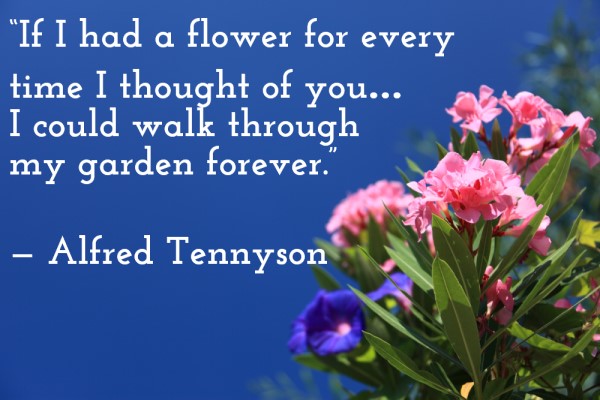
Get more like this straight to your inbox!
Plus our exclusive guide Things your mama never told you about talking dirty…
According to a study by Matthew Johnson et al. (2019) of the University of Alberta, the idea that you’re in a relationship that can last can influence the quality and outcome of your relationship. This makes sense, as the level of confidence influences how we interact, whether in positive or negative ways. So how is your level of confidence in your relationship? And, if this needs sprucing up, how can you do this?

 First things first, find out what your level of confidence in your relationship is. Test yourself with the five questions the authors in the study used to measure relationship confidence. Use a 1 to 7 scale of strongly disagree (1) to strongly agree (7) regarding your current relationship:
First things first, find out what your level of confidence in your relationship is. Test yourself with the five questions the authors in the study used to measure relationship confidence. Use a 1 to 7 scale of strongly disagree (1) to strongly agree (7) regarding your current relationship:
- I feel good about our prospects to make this relationship work for a lifetime.
- I am very confident when I think of our future together.
- I believe we can handle whatever conflicts will arise in the future.
- We have the skills a couple needs to make a marriage last.
- We can handle anything that comes our way.
Now, what to do about the results. Identifying strengths and weaknesses is the first step. Take a moment to celebrate any areas of strength and share any gratitude you have with your partner! See “How to Create Appreciation and Gratitude in Your Relationship” for a refresher.
Lower scores identify areas you may want to improve. If your level of confidence is low in, for instance, your ability to handle conflict, then working on conflict management skills would be a great thing to focus on. Check out these blogs: “Contempt, the Battery Acid,” “How to Get Rid of Criticism and Defensiveness,” “3 Ways to Keep Calm When Your Partner is Driving You Nuts!”, and “Do the Same Arguments Keep Coming Up Again and Again With Your Partner?”

 If you are concerned about other skills you will need, such as keeping romance alive, or building and maintaining trust, read up on these topics. You could start with “How Healthy is Your Sex Life?” and “How to Create Trust and Maintain Trust in Your Relationship.” Take time to reflect as honestly as you can, then have a conversation or two with your partner. If it feels daunting to do this on your own, participating in a workshop that focuses on these skills can make a world of difference. Or, if you would prefer more individualized support, consider a couple retreat.
If you are concerned about other skills you will need, such as keeping romance alive, or building and maintaining trust, read up on these topics. You could start with “How Healthy is Your Sex Life?” and “How to Create Trust and Maintain Trust in Your Relationship.” Take time to reflect as honestly as you can, then have a conversation or two with your partner. If it feels daunting to do this on your own, participating in a workshop that focuses on these skills can make a world of difference. Or, if you would prefer more individualized support, consider a couple retreat.
Whatever the results of your assessment, this is an excellent time of year to look under the hood of your relationship and tune up any areas that need addressing. This will help ensure you have a reliable and healthy ride for the year to come and beyond.
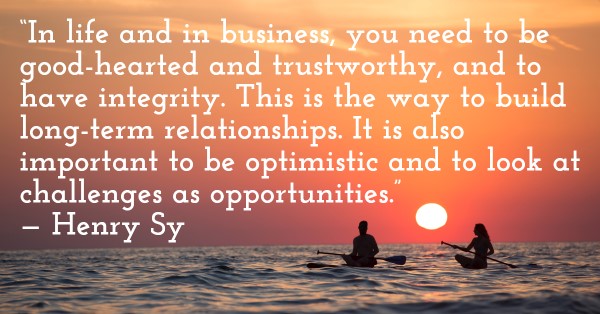
Get more like this straight to your inbox!
Plus our exclusive guide Things your mama never told you about talking dirty…

 For making significant changes in your relationship, the good news is that doing “small things often” will get you there. Dr. Gottman’s research shows that tiny moments in couple interactions make a big difference in the relationship over time. The first few moments in a conversation, for example, around a disagreement, predict not only how that conversation will go, but how the relationship will go (whether “happily ever after” or in divorce). I’ve talked about the four horsemen of the apocalypse in other blogs, and if you guessed that these were the things that predicted divorce, you would be right!
For making significant changes in your relationship, the good news is that doing “small things often” will get you there. Dr. Gottman’s research shows that tiny moments in couple interactions make a big difference in the relationship over time. The first few moments in a conversation, for example, around a disagreement, predict not only how that conversation will go, but how the relationship will go (whether “happily ever after” or in divorce). I’ve talked about the four horsemen of the apocalypse in other blogs, and if you guessed that these were the things that predicted divorce, you would be right!
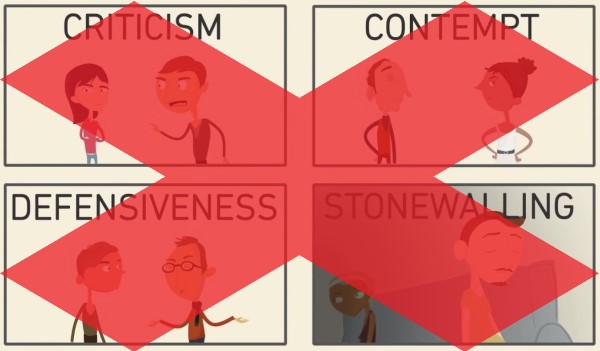
 So, if I had only one recommendation to couples for a new year’s resolution, I would choose this one: get rid of the four horsemen in your relationship. Start by choosing one to work on. For instance, criticism. Step one, notice if you use any “you” statements (e.g., “You never take out the trash.”) or global statements (these include words like never and always). Step two, keep a journal of the times you notice when you use a criticism (a simple tally on your phone would work great). Step three, work on replacing these with I statements (“I feel about , I need .”). For example, “I feel irritated that the trash is overflowing, please help me by taking it out.” You can start small by practicing starting statements with “I.” Bonus step, tally the times you remember to use “I.” Step four, continue previous steps for at least six weeks.
So, if I had only one recommendation to couples for a new year’s resolution, I would choose this one: get rid of the four horsemen in your relationship. Start by choosing one to work on. For instance, criticism. Step one, notice if you use any “you” statements (e.g., “You never take out the trash.”) or global statements (these include words like never and always). Step two, keep a journal of the times you notice when you use a criticism (a simple tally on your phone would work great). Step three, work on replacing these with I statements (“I feel about , I need .”). For example, “I feel irritated that the trash is overflowing, please help me by taking it out.” You can start small by practicing starting statements with “I.” Bonus step, tally the times you remember to use “I.” Step four, continue previous steps for at least six weeks.
Once you have “you” statements reduced, you can focus on other horsemen, like defensiveness. The same steps above work for this one, in this case, replace the I statements with taking responsibility; for example, “You’re right, I haven’t taken out the trash yet.” Taking responsibility is the antidote for the second horseman. That “I statement” is also handy in avoiding defensiveness (which can take the form of a counter-attack, a critical statement or whining). After taking responsibility, it may be helpful to continue the conversation with your own perspective on the subject. So, the above example could be: “You’re right, I haven’t taken the trash out yet. I’ve been feeling stressed lately and would like to talk about how to handle household chores when we are so busy.”
If you focus on one horseman at a time, for six weeks each, it would only take you half the year. This will result in significant changes in your relationship for the better!
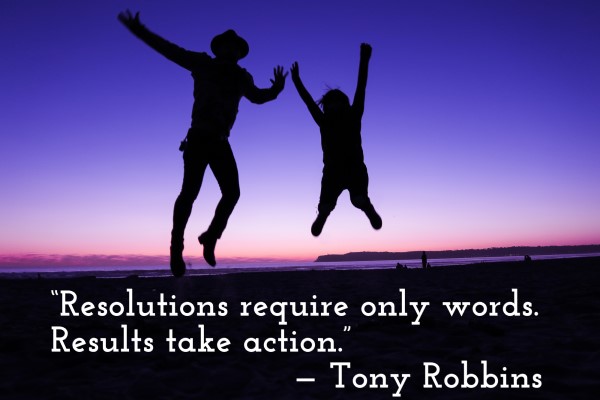
Get more like this straight to your inbox!
Plus our exclusive guide Things your mama never told you about talking dirty…
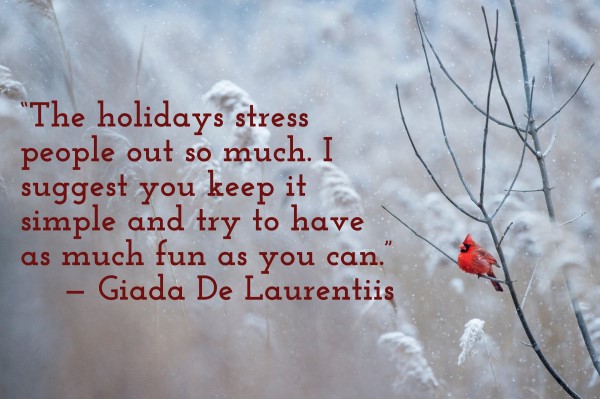
The holidays are notoriously stressful times, even though they are touted as being joyous occasions. Indeed, the expectations are that they should be full of happiness and meaning. But the holidays can be a time of loss (if someone is no longer with us to celebrate), conflict (with family members we may otherwise avoid), and dashed expectations. In some cases, someone may struggle with substance use, which can tilt events into chaos when folks have had a bit too much. So, what to do? Here are some things to consider:
- Have a conversation about the holidays in this way: Choose a holiday or tradition and have a conversation about how it should be celebrated. Discuss these questions: 1) What is meaningful about this for you? 2) When will this be done? 3) How often will it be done? 4) How long should it last each time? 5) Who will initiate it? 6) What will happen next? 7) How will it end? 8) How can we integrate this into our lives so we can count on it? These questions are useful for discussing any ritual of connection—these are events (daily, weekly, or annual) that connect you as a couple or family. Rituals of connection span things like how we say goodbye, bedtime, what happens when someone is sick, or dinner parties. Bill Doherty’s book, The Intentional Family, is an excellent resource on this topic. Once you have such a conversation as a couple, then the next tip may already be on its way.
- Set limits and expectations. Around the holidays, this is a must, both for ourselves and with others. If you are hosting an event in your home, consider setting clear expectations around allowable topics of conversation (leave politics at the door, for example). Choose a menu that limits problem areas and/or choose seating arrangements that may limit conflictual interactions. If you are someone else’s guest, have an exit plan in place. Agree ahead of time with your partner when, or under what circumstances, it would be best to say goodbye and leave; this could be very important. Also, have a conversation about the kind of support you want to provide one another. For example, “When your mother says , please say/do [be as specific as possible] to show you support me.” Or, “I need you to call me to another room when you see getting on my nerves.” You can also agree to take a break (the bathroom is a great option) of at least 20 minutes if needed (see 3 Ways to Keep Calm When Your Partner is Driving You Nuts!).
- Have ways of managing stress as a couple. One study found that couples who can buffer each other from the stresses of life do better over time. So, having conversations with your partner that allow you to vent (about things outside the relationship), or release stress, is essential. Be aware: problem-solving, in this case, is counterproductive; you need to slow things down and taking a break from problem-solving. It is hard to shift out of this mindset, particularly for men, who are generally socialized to be more comfortable solving problems (versus talking about feelings). Instead of problem-solving, focus on active listening (see A Simple Listening Exercise to Help You Become a Great Listener). Make sure to avoid the Four Horsemen (see Contempt, the Battery Acid and How to Get Rid of Criticism and Defensiveness). Listen intensely and offer support; more than anything else, show your partner that you are there for them. And only provide problem-solving tips (aka advice) to your partner if they ask you to. Take turns listening to one another for 10 minutes each. I recommend doing this as often as you experience stress outside your relationship—sounds like the holidays, right? Better yet, make this kind of conversation a daily ritual and take turns listening to one another year-round!


Get more like this straight to your inbox!
Plus our exclusive guide Things your mama never told you about talking dirty…
Stay up to date with relationship tips and more
Plus our exclusive guide Things your mama never told you about talking dirty…

